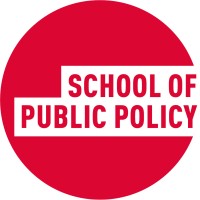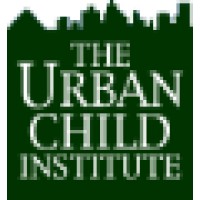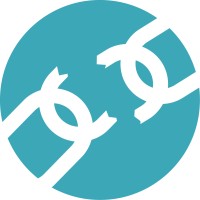Company Details
sfu-school-of-public-policy
None employees
1,129
921
sfu.ca
0
SFU_1126833
In-progress

SFU School of Public Policy Company CyberSecurity Posture
sfu.caSimon Fraser University's School of Public Policy was established in 2003 and offers the Master's in Public Policy (MPP) graduate program and a strong core of research addressing a broad range of policy issues. We are located at the SFU Vancouver campus–in the heart of the city's downtown core. The two-year, cohort based MPP program balances theory and practical application to develop the necessary skills for public policy careers in public and private sectors, as well as not for profit organizations and NGOs. Strong research and analytical skills are the foundation of a rigorous professional graduate education that recognizes that today, major institutional change is essential, and requires listening and acting on the voices of marginalized and racialized people. The program emphasizes student-initiated learning including critical thinking that challenges and speaks to power and group explorations that explore and address diverse and complex policy problems and issues, including social and economic inequality, poverty and other forms of injustice. Its distinguished faculty engage in research and policy practice in many areas including health, environment, Indigenous governance and development, education, social justice and inequality, housing, conflict resolution and more.
Company Details
sfu-school-of-public-policy
None employees
1,129
921
sfu.ca
0
SFU_1126833
In-progress
Between 700 and 749

 SSPP Global Score (TPRM)
SSPP Global Score (TPRM)XXXX

Description: A Metro Vancouver university, Simon Fraser University (SFU) had became a victim of data breach which took place at the institution. Those affected include any faculty, staff, students, alumni, and retirees who joined the university before June 20, 2019. Information that was exposed includes SFU Computing IDs; SFU student or employee ID numbers; first, last, and preferred names; birthdates; employee groups; mail list memberships; course enrollment; external email addresses; web form data; and encrypted passwords.l.


No incidents recorded for SFU School of Public Policy in 2025.
No incidents recorded for SFU School of Public Policy in 2025.
No incidents recorded for SFU School of Public Policy in 2025.
SSPP cyber incidents detection timeline including parent company and subsidiaries

Simon Fraser University's School of Public Policy was established in 2003 and offers the Master's in Public Policy (MPP) graduate program and a strong core of research addressing a broad range of policy issues. We are located at the SFU Vancouver campus–in the heart of the city's downtown core. The two-year, cohort based MPP program balances theory and practical application to develop the necessary skills for public policy careers in public and private sectors, as well as not for profit organizations and NGOs. Strong research and analytical skills are the foundation of a rigorous professional graduate education that recognizes that today, major institutional change is essential, and requires listening and acting on the voices of marginalized and racialized people. The program emphasizes student-initiated learning including critical thinking that challenges and speaks to power and group explorations that explore and address diverse and complex policy problems and issues, including social and economic inequality, poverty and other forms of injustice. Its distinguished faculty engage in research and policy practice in many areas including health, environment, Indigenous governance and development, education, social justice and inequality, housing, conflict resolution and more.


I Skatteministeriet er du med til at skabe fundamentet for finansieringen af den offentlige sektor. Her får du faglige udfordringer, indflydelse og stort ansvar som medarbejder i Skatteministeriet. Alle borgere, virksomheder og organisationer berøres af skattesystemet hvert eneste år. Vores arbejde

The Clear Language Institute is a non-profit, 501(c)3 corporation whose mission is to make sure that all amendments, referenda or other propositions that Americans vote on are written in simple, clear language that is easily understood by voters. To accomplish this, we will use consumer testing,

The Vidhi Centre for Legal Policy is an independent think-tank doing legal research to make better laws and improve governance for the public good. We engage with Ministries in the Government of India, State governments, Standing Committees of Parliament, other agencies and instrumentalities of the

The Urban Child Institute is a non-profit organization dedicated to the well-being and health of children from conception to three years old in Memphis and Shelby County. Organizationally, we are a data-driven, result-oriented coalition of community researchers, strategists, and practitioners who sh

Jubilee USA Network is an interfaith, non-profit alliance of religious, development and advocacy organizations. We are 75 U.S. institutions and more than 650 faith groups working across the United States and around the globe. We address the structural causes of poverty and inequality in our communi

Here for those who dare to imagine. Creative UK works to harness the power of the Creative Industries to build a stronger, fairer, and more prosperous future. Creative UK is the result of the Creative Industries Federation and Creative England coming together under one brand identity. We will cont
.png)
Explore cybersecurity challenges in Cybersecurity and Society: Our Future of Digital Privacy at the UW Cybersecurity and Privacy Institute Annual...
Mariah crossed the stage this year, proudly receiving her International Studies degree with a concentration in Comparative World Politics,...
SFU professor emeritus of criminology and public policy analyst Robert Gordon has died, leaving behind a trail of “pivotal” contributions to...
This fall, more than 30 new courses are being offered, each of which aims to provide a deeper dive into the rapidly changing world.
Simon Fraser University's School of Computing Science is launching two new master's degree programs to meet the growing need for high-demand skills.
Simon Fraser University's School of Computing Science professor Yasutaka Furukawa is researching smart building technology and ways to include people as an...
With an interdisciplinary background in engineering and English literature, Simon Fraser University's School of Communication professor and Canada 150...
With backgrounds in Public Policy and Interdisciplinary Studies, Simon Fraser University's School of Public Policy associate professor and Research...
Simon Fraser University's School of Computing Science professor Mo Chen is developing artificial intelligence systems that can more efficiently and safely...

Explore insights on cybersecurity incidents, risk posture, and Rankiteo's assessments.
The official website of SFU School of Public Policy is http://www.sfu.ca/mpp.html.
According to Rankiteo, SFU School of Public Policy’s AI-generated cybersecurity score is 745, reflecting their Moderate security posture.
According to Rankiteo, SFU School of Public Policy currently holds 0 security badges, indicating that no recognized compliance certifications are currently verified for the organization.
According to Rankiteo, SFU School of Public Policy is not certified under SOC 2 Type 1.
According to Rankiteo, SFU School of Public Policy does not hold a SOC 2 Type 2 certification.
According to Rankiteo, SFU School of Public Policy is not listed as GDPR compliant.
According to Rankiteo, SFU School of Public Policy does not currently maintain PCI DSS compliance.
According to Rankiteo, SFU School of Public Policy is not compliant with HIPAA regulations.
According to Rankiteo,SFU School of Public Policy is not certified under ISO 27001, indicating the absence of a formally recognized information security management framework.
SFU School of Public Policy operates primarily in the Public Policy Offices industry.
SFU School of Public Policy employs approximately None employees people worldwide.
SFU School of Public Policy presently has no subsidiaries across any sectors.
SFU School of Public Policy’s official LinkedIn profile has approximately 1,129 followers.
SFU School of Public Policy is classified under the NAICS code 921, which corresponds to Executive, Legislative, and Other General Government Support.
No, SFU School of Public Policy does not have a profile on Crunchbase.
Yes, SFU School of Public Policy maintains an official LinkedIn profile, which is actively utilized for branding and talent engagement, which can be accessed here: https://www.linkedin.com/company/sfu-school-of-public-policy.
As of November 27, 2025, Rankiteo reports that SFU School of Public Policy has experienced 1 cybersecurity incidents.
SFU School of Public Policy has an estimated 1,025 peer or competitor companies worldwide.
Incident Types: The types of cybersecurity incidents that have occurred include Breach.
Title: Simon Fraser University Data Breach
Description: A Metro Vancouver university, Simon Fraser University (SFU), became a victim of a data breach which took place at the institution. Those affected include any faculty, staff, students, alumni, and retirees who joined the university before June 20, 2019. Information that was exposed includes SFU Computing IDs; SFU student or employee ID numbers; first, last, and preferred names; birthdates; employee groups; mail list memberships; course enrollment; external email addresses; web form data; and encrypted passwords.
Type: Data Breach
Common Attack Types: The most common types of attacks the company has faced is Breach.

Data Compromised: Sfu computing ids, Sfu student or employee id numbers, First, last, and preferred names, Birthdates, Employee groups, Mail list memberships, Course enrollment, External email addresses, Web form data, Encrypted passwords
Commonly Compromised Data Types: The types of data most commonly compromised in incidents are Sfu Computing Ids, Sfu Student Or Employee Id Numbers, First, Last, And Preferred Names, Birthdates, Employee Groups, Mail List Memberships, Course Enrollment, External Email Addresses, Web Form Data, Encrypted Passwords and .

Entity Name: Simon Fraser University
Entity Type: Educational Institution
Industry: Education
Location: Metro Vancouver
Customers Affected: faculty, staff, students, alumni, retirees

Type of Data Compromised: Sfu computing ids, Sfu student or employee id numbers, First, last, and preferred names, Birthdates, Employee groups, Mail list memberships, Course enrollment, External email addresses, Web form data, Encrypted passwords
Data Encryption: encrypted passwords
Personally Identifiable Information: SFU Computing IDsSFU student or employee ID numbersfirst, last, and preferred namesbirthdates
Most Significant Data Compromised: The most significant data compromised in an incident were SFU Computing IDs, SFU student or employee ID numbers, first, last, and preferred names, birthdates, employee groups, mail list memberships, course enrollment, external email addresses, web form data, encrypted passwords and .
Most Sensitive Data Compromised: The most sensitive data compromised in a breach were web form data, SFU student or employee ID numbers, mail list memberships, encrypted passwords, SFU Computing IDs, external email addresses, first, last, and preferred names, birthdates, employee groups and course enrollment.
.png)
Angular is a development platform for building mobile and desktop web applications using TypeScript/JavaScript and other languages. Prior to versions 19.2.16, 20.3.14, and 21.0.1, there is a XSRF token leakage via protocol-relative URLs in angular HTTP clients. The vulnerability is a Credential Leak by App Logic that leads to the unauthorized disclosure of the Cross-Site Request Forgery (XSRF) token to an attacker-controlled domain. Angular's HttpClient has a built-in XSRF protection mechanism that works by checking if a request URL starts with a protocol (http:// or https://) to determine if it is cross-origin. If the URL starts with protocol-relative URL (//), it is incorrectly treated as a same-origin request, and the XSRF token is automatically added to the X-XSRF-TOKEN header. This issue has been patched in versions 19.2.16, 20.3.14, and 21.0.1. A workaround for this issue involves avoiding using protocol-relative URLs (URLs starting with //) in HttpClient requests. All backend communication URLs should be hardcoded as relative paths (starting with a single /) or fully qualified, trusted absolute URLs.
Forge (also called `node-forge`) is a native implementation of Transport Layer Security in JavaScript. An Uncontrolled Recursion vulnerability in node-forge versions 1.3.1 and below enables remote, unauthenticated attackers to craft deep ASN.1 structures that trigger unbounded recursive parsing. This leads to a Denial-of-Service (DoS) via stack exhaustion when parsing untrusted DER inputs. This issue has been patched in version 1.3.2.
Forge (also called `node-forge`) is a native implementation of Transport Layer Security in JavaScript. An Integer Overflow vulnerability in node-forge versions 1.3.1 and below enables remote, unauthenticated attackers to craft ASN.1 structures containing OIDs with oversized arcs. These arcs may be decoded as smaller, trusted OIDs due to 32-bit bitwise truncation, enabling the bypass of downstream OID-based security decisions. This issue has been patched in version 1.3.2.
Suricata is a network IDS, IPS and NSM engine developed by the OISF (Open Information Security Foundation) and the Suricata community. Prior to versions 7.0.13 and 8.0.2, working with large buffers in Lua scripts can lead to a stack overflow. Users of Lua rules and output scripts may be affected when working with large buffers. This includes a rule passing a large buffer to a Lua script. This issue has been patched in versions 7.0.13 and 8.0.2. A workaround for this issue involves disabling Lua rules and output scripts, or making sure limits, such as stream.depth.reassembly and HTTP response body limits (response-body-limit), are set to less than half the stack size.
Suricata is a network IDS, IPS and NSM engine developed by the OISF (Open Information Security Foundation) and the Suricata community. In versions from 8.0.0 to before 8.0.2, a NULL dereference can occur when the entropy keyword is used in conjunction with base64_data. This issue has been patched in version 8.0.2. A workaround involves disabling rules that use entropy in conjunction with base64_data.

Get company history
















Every week, Rankiteo analyzes billions of signals to give organizations a sharper, faster view of emerging risks. With deeper, more actionable intelligence at their fingertips, security teams can outpace threat actors, respond instantly to Zero-Day attacks, and dramatically shrink their risk exposure window.
Identify exposed access points, detect misconfigured SSL certificates, and uncover vulnerabilities across the network infrastructure.
Gain visibility into the software components used within an organization to detect vulnerabilities, manage risk, and ensure supply chain security.
Monitor and manage all IT assets and their configurations to ensure accurate, real-time visibility across the company's technology environment.
Leverage real-time insights on active threats, malware campaigns, and emerging vulnerabilities to proactively defend against evolving cyberattacks.




